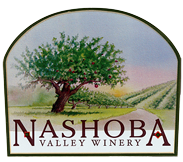Old Wines and Aging
Older Wines
In truth, most wineries are producing wines that are made to be consumed within a short period of sale. They will not improve with age and will not increase in value with age. Not that they will not last a number of years as alcohol is a preservative, but simply that they will not improve much with aging. How the wine is stored and at what temperature it was stored at will improve or reduce the period of time when the wine will remain consumable. This is especially true of wines that are produced with some residual sweetness.
So, to all those people who believe you have to hold on to a wine for an indefinite length of time before you drink it, take note: Those days are over for the most part. The only real way to tell if wine is still good is to smell and taste it. Visually, you can probably tell if it has a brown tinge or a sediment by holding it up to a bright light or by shining the sun through it. If it has any junk floating around in it at all, or looks at all dark or brown, it is probably gone but all sediment is not necessarily a sign of spoilage as wine often precipitates proteins and acids which may not negatively impact the flavor. In this situation, simply decant the wine to another vessel and enjoy. Nice fruity wine, including grape wines described as fruity, really should be consumed now if you want to enjoy it while it still resembles what you had at the winery.
In the brilliant words of actor-comedian Steve Martin, “Bring us some fresh wine. No more of that old stuff!”
Did this answer your q
